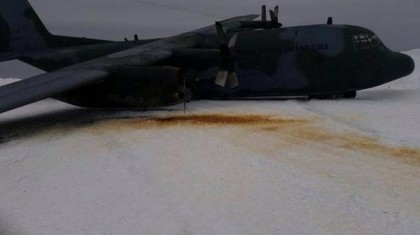There have been at least four ships already this Antarctic summer that have cancelled cruises, due to various issues (many of which were unavoidable) but the latest cancellations are, remarkably, due to a plane crash in Antarctica.

The crash happened at Eduardo Frei Base (belonging to Chile) on King George Island in the South Shetlands, which are separated from the Antarctic mainland by the Bransfield Strait. The aircraft involved was a C-130 Hercules belonging to the Brazilian air force.
The airstrip at Frei is not only used by scientific personnel but also by tourists lacking the time or the motivation to take on the crossing of the notorious Drake Passage. Their ship waits nearby, and as soon as the passengers board they’re off, making landings across the Peninsula
When cancellations happen everyone is understandably very disappointed. Who wouldn’t be, after spending all that money, taking all that time off work, and spending so long dreaming of Antarctica? Some are sad, some are angry and all are surprised. Of course they are.
When accidents occur on a ship then it turns around and heads for home — there’s no rescue out here, except by fellow cruise vessels. The best you can possibly do in case of a medical emergency is go to King George Island, ask for a plane and if the weather is good they will let you wait in the bay until the plane is there and ready to fly your patient out. When this happens the same reactions of disappointment, anger and surprise run through everyone on board.
While the disappointment is natural, sometimes I wonder if the anger and the surprise shouldn’t be. Some people (certainly not all) come to Antarctica expecting a natural Disneyland where they are guaranteed that they will gain entrance, get two landings a day most days and see a lot of wildlife. The reality, when it doesn’t all go to plan, can be crushing. I suspect to some extent this attitude comes from the tour companies running the trips and the travel agents selling them, but that might just be me projecting! Most of all it probably comes from the by now large numbers of people who have made successful trips, cocooned by the strong vessel they are travelling in and by the highly professional teams surrounding them. They go home and tell their friends and their friends expect the same or similar experience.
However at the end of the day surely what many people want to see is the raw, untouched continent, the final icy frontier. And in a truly raw and untouched continent, if something goes wrong we’ll have to turn and run because we’re far from the infrastructure and support we’re used to. Where if you can’t fix it yourself you’re in trouble. That’s the Antarctica I go south to see, and long may it last.
No comments:
Post a Comment